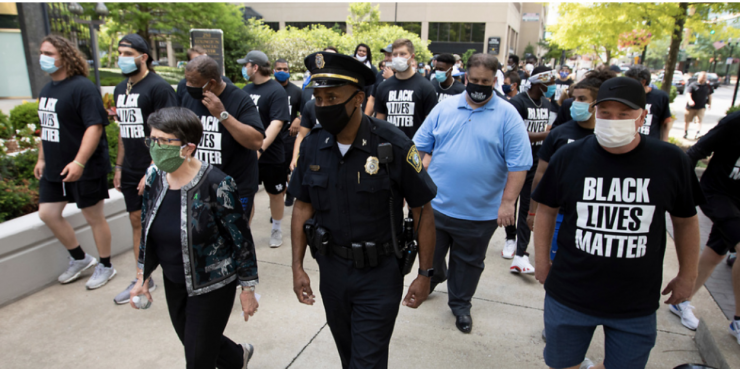Sustainability has long been described using the metaphor of a three legged stool – or a triple bottom line – where environmental stewardship and social equity/justice are balanced equals to economic considerations. Despite the popularity of this metaphor, the environmental implications of sustainability initiatives have garnered the larger share of media attention and, frankly, our programming efforts. To this point, what’s the first thing you think of when you hear the word Sustainability? Based on my experience working in this field for two decades, I’d bet that it includes some shade of green.
The events of this past year have shifted my thinking about these popular metaphorical descriptions of my profession. Justice and equity for all people, regardless of any personally, geographically, or culturally assigned identities, must be the foundation for our sustainability-driven efforts. Without this as a base, it is neither reasonable nor respectful to ask or expect marginalized communities to lean into the work necessary for balancing our economies with our ecosystems. The celebrated environmental economist and author Paul Hawken spoke to this in his recent book, Blessed Unrest:
“There can be no green movement unless there is also a black, brown, and copper movement…. There is no question that the environmental movement is critical to our survival. Our house is literally burning, and it is only logical that environmentalists expect the social justice movement to get on the environmental bus. But it is the other way around; the only way we are going to put out the fire is to get on the social justice bus and heal our wounds, because in the end there is only one bus.”
Paul Hawken, from Blessed Unrest
The 17 Sustainable Development Goals (SDGs) identified by the United Nations also recognize the importance of starting from a just and fair foundation. Out of the 17 goals, at least seven focus explicitly on social conditions:
- No Poverty (1)
- Zero Hunger (2)
- Good Health and Well-being (3)
- Quality Education (4)
- Gender Equality (5)
- Decent Work and Economic Growth (8)
- Reduced Inequality (10)
So what will this look like at UK? How does justice, equity, and diversity become foundational to our sustainability programs? This is still evolving, but some aspects are taking shape:
- At a high level, the University’s goals relative to Diversity, Equity and Inclusion (DEI) will be at the forefront of the planning process as we develop an update to the University’s Sustainability Strategic Plan.
- We are evaluating our flagship initiatives such as the Student Internship Program, Sustainability Challenge Grant Program, and the Student Sustainability Council. In these efforts we are seeking ways to foster more representation in our applicant pools and implementing a stronger focus of social justice-related outcomes.
- We are also looking at the composition of the University’s sustainability councils and committees to ensure that these groups are representative of the diversity of our campus.
- Finally, we are increasing our efforts to promote and support campus partners that are working on issue of justice, equity, and diversity.

We look forward to this critical challenge and want to hear your thoughts. Let us know in the comments how you think UK’s Sustainability efforts can best promote a campus culture of justice, equity, diversity and inclusion.



























